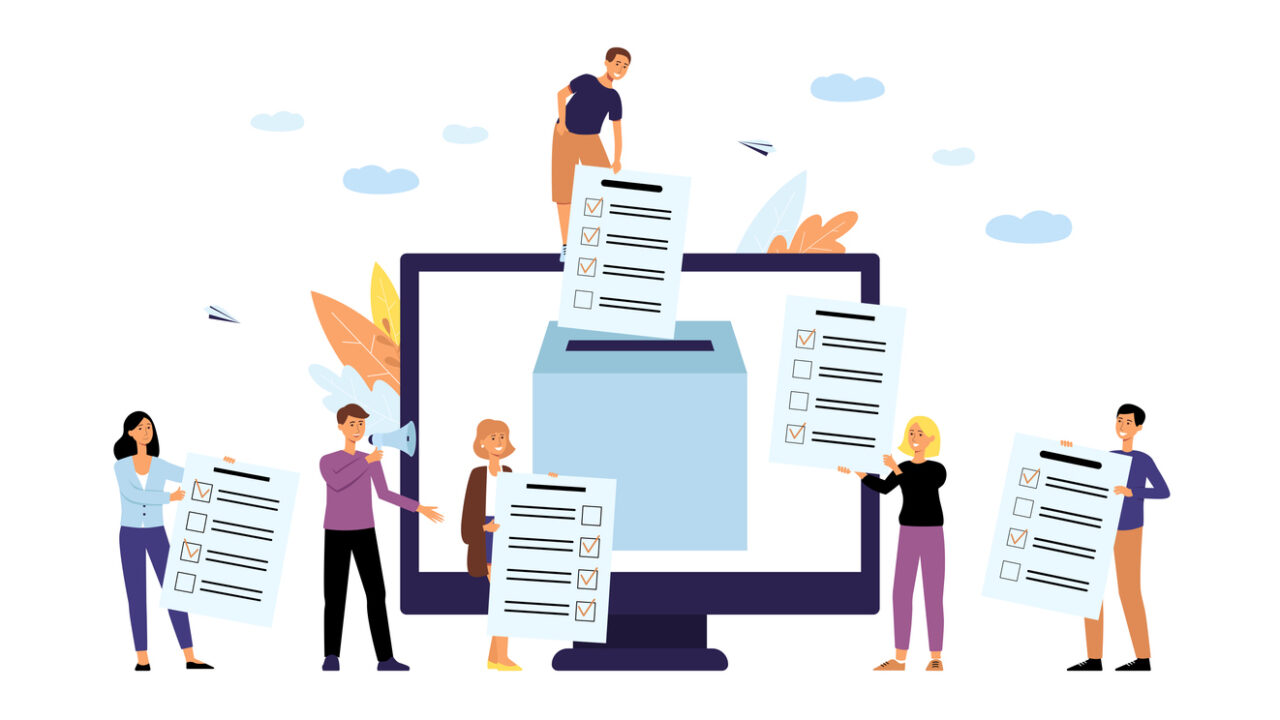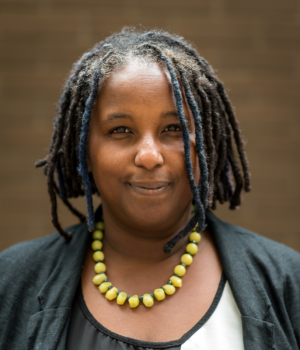Inside-outside strategies have been put to the test during the pandemic, as community organizations have ramped up their organizing to make sure frontline community members are part of the decisions that affect them the most. In this interview, which has been edited and condensed, Lauren Jacobs, Executive Director of PowerSwitch Action (formerly the Partnership for Working Families), sits down with Santa Clara County Supervisor Cindy Chavez and Working Partnerships USA (WPUSA) Executive Director Derecka Mehrens to talk about what they’ve learned through their decade-long experience building co-governance models in Santa Clara County and San Jose, how COVID has tested these models, and why investing in democratic decision-making processes is so critical for our future.
Lauren Jacobs: Tell me about the political context for the work you’re doing in San Jose and Santa Clara County.
Derecka Mehrens: I’m now going into my 20th year of organizing in Silicon Valley, which is crazy. And you know, when we think about co-governance and the movement-building work that we have to do in this particular place, you can’t help but think about the fact that we’re situated among the tech giants of our time. They use our freeways, they live next to our people, they shop at our grocery stores. So we’re in a very diverse place with enormous gaps in inequality that have just gotten wider in the 20 years that I’ve been working here. If we can do experiments in democracy and experiments in power building where the gap is so wide, where the actors who are deciding about our democracy and our economy are situated, that’s a contribution to the field and to the future. We do our work knowing that we have an obligation to [our] kids to figure out how this society is going to work 50 years from now because if we continue on this path, it won’t; it will crumble.
Cindy Chavez: We had, for a long time, thought of Silicon Valley as the tip of the spear. We have 70,000 households in our community — in the center of Silicon Valley — that don’t have access to broadband, and those are families that are not able to use that laptop at home at night to do their homework, they’re not using the computer to get a job, they’re not able to do telemedicine.
LJ: One example that I want to raise is the recent WPUSA & Silicon Valley Rising victory around the community fund for the new Google campus in San Jose. [After four years of organizing, Google and the city of San Jose signed an agreement for a development that includes 2,000 affordable housing units and a $150 million community fund that will be governed by grassroots leaders.] It may be a co-governance model. What do you think people should be learning from this?
DM: We found ourselves amidst a corporate campaign with Google and the city of San Jose quite suddenly; it was not in our work plan in 2017. Google and the City of San Jose sort of secretly, through the use of NDAs and backdoor meetings, came to a preliminary agreement to build one of the largest tech campuses in the country in downtown San Jose, a city that has for decades had a jobs/housing imbalance. [The Google campus] was seen as a coup by the recently elected mayor of San Jose. The nature of the closed-door agreement without a process to engage the community was shocking. We knocked on tens of thousands of doors. We engaged already organized constituencies and nonprofits and unions and then we put them together for town hall meetings and organizing committee meetings, and we debated amongst ourselves. We had a left flank that said we should be opposing Google altogether; we should just say no. And we had to fight among ourselves to be like, is that the right path or is the path to fight like hell to try to impact how tech development happens in the valley and make it right? The [community] fund came out of that because we wanted to create a new way for organized people to express power and deliver resources to themselves.
We often find that governments or even corporations will enlist their own polling, will fund their own hand-picked community folks to sit on boards to sort of give a nod to community governance. As a field, we need to distinguish co-governance [from] bringing community into decision making. Through debate and conversation and tears and, yes, sometimes raised voices, folks get in relationship with one another and then can weigh in on what it means to build something like this. And that is what we mean by co-governance.
LJ: Working Partnerships worked with the county to create the Office of Labor Standards Enforcement, which contracts with Fair Workplace Collaborative to provide public engagement, organizing, and services around wage theft. How did this structure serve you once COVID hit?
DM: The Office of Labor Standards Enforcement [was created] to help us innovate how the labor movement is going to support non-union workers, creating that structure to protect our folks and to put boots on the ground for the next crisis. Our movement ecosystems need institutions with agility and flexibility to be able to respond to moments of crisis and catalytic moments, and it’s an example of that.
CC: We knew that in order to get people vaccinated [and] tested, we needed on-the-ground troops who could go door to door and who could train people to have very difficult conversations with them on the door. We started really early on in the pandemic reaching out to the strongest partner we knew from an organizing perspective and that was Working Partnerships. It allowed us to get almost 200 people on doors and phones, encouraging people to get vaccinated in the toughest-to-reach communities; as of today, 81 percent of people over the age of 12 are fully vaccinated in Santa Clara County. That absolutely saved lives in communities of color. Organizing — this ability to go door to door, this ability to have phone conversations, to text, to really engage people where they are — is how we not only build power, but in the most stark way, it literally saves lives.
LJ: How are people who are traditionally excluded from the political process brought in and how does co-governance make it possible for more people to be included?
CC: You know, it’s funny, since I’ve been a kid, I’ve heard people talk about how women are more collaborative than men, and it always sounded almost like a backhanded compliment. Like, women are able to work together, they can share leadership and organizations, you know, and isn’t that sweet, isn’t that lovely? And the way I think about collaboration is, it’s much harder to do than almost any other single act that we take when we’re trying to make change because collaboration takes time, it takes compromise, it takes energy, it takes focus, it takes creativity, it takes tenacity, and it takes a level of deep and abiding appreciation of other human beings than just “go it alone” kind of politics. Our biggest accomplishments come from deep collaboration, almost always.
LJ: Derecka, if you’re successful, how will the relationship between elected officials and community work when the next generation takes over? Imagine we’re sitting in rocking chairs having cocktails…
DM: That’s a hard question because I don’t think we know. Co-governance doesn’t just mean electing people. I think for a long time that is what it has become — a buzzword about just electing people. And our democracy is more broken than that. It is not just about electing people, it is about reinventing democracy. We have to humbly recognize that we are in a place where we aren’t going to solve the problems with democracy alone. If we’re successful, we are learning — we’re being rigorous and disciplined about the experimentation that we’re undergoing in co-governance. We’re taking risks; we’re going to fail in some, and we’re going to succeed in some. And we’re creating an ecosystem of institutions and human beings who are then going to lead statewide change and national change.

